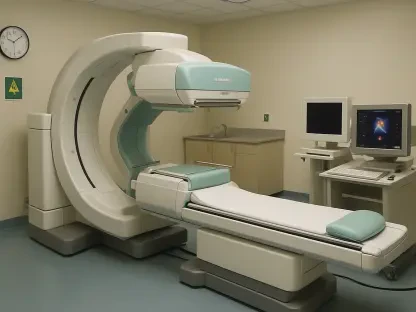The healthcare industry stands on the brink of transformation due to artificial intelligence (AI). Industry leaders are optimistic that AI has the potential to revolutionize numerous facets of healthcare despite facing significant challenges in its implementation.
Exploring the Promise and Challenges of AI in Healthcare
As excitement grows around AI’s potential to transform healthcare, core questions and challenges emerge that cannot be ignored. Healthcare leaders anticipate that AI will radically improve clinical decision-making, patient management, and administrative workflows. However, obstacles such as regulatory complexity, security issues, data integration costs, and limited in-house expertise present significant barriers to fully realizing AI’s benefits.
Background and Context
The integration of AI into healthcare has become increasingly crucial. Technologies capable of performing tasks such as data analysis, predictive modeling, and automated documentation significantly enhance productivity. In a sector burdened by clinician shortages and administrative inefficiencies, AI’s advancement is not just a technological breakthrough but also a necessity. Future healthcare solutions will likely depend on leveraging AI’s capabilities to provide higher quality and more efficient patient care.
Research Methodology, Findings, and Implications
Methodology
The investigation employed a comprehensive survey approach, targeting over 400 leaders from payer, provider, and pharmaceutical organizations. Data collection involved qualitative and quantitative measures to gather insights on AI implementation, challenges, and strategic orientations. The analysis combined statistical evaluation with thematic exploration to discern patterns and implications.
Findings
The findings underscore AI’s transformative potential in several key areas. Leaders predict that AI will revolutionize clinical decision-making in the coming years. Around 85% of provider organization leaders foresee significant advancements within three to five years. Moreover, AI’s capacity to reduce labor costs presents a valuable opportunity for streamlining operations. Approximately 80% of survey respondents believe labor cost reduction is plausible with AI’s integration.
The widespread consensus exists among healthcare sectors regarding AI’s effectiveness in enhancing decision-making processes and easing administrative tasks. AI’s capabilities extend beyond clinical realms, contributing to task automation like scheduling and documentation. Yet, the gap between pilot projects and full implementation remains wide, with only 30% of AI initiatives reaching production stages.
Implications
The implications of these findings are profound, indicating practical, theoretical, and societal impacts. Practically, AI could lead to more efficient healthcare delivery, reducing clinician burnout by handling cumbersome tasks and allowing professionals to focus on patient care. Theoretically, the success of AI in healthcare settings could drive further research into optimizing healthcare operations. Societal implications include improved patient outcomes and potentially lower healthcare costs, making quality care more accessible.
Reflection and Future Directions
Reflection
Reflecting on the research, several insights and challenges become clear. While the potential for AI to revolutionize healthcare is vast, substantial obstacles still hinder progress. The survey highlights the importance of establishing robust AI strategies and governance. There is also a need for greater expertise within healthcare organizations to manage AI technologies effectively.
Future Directions
Future research should explore unresolved questions and the opportunities AI presents. One potential direction includes investigating the long-term impacts of AI on specific patient outcomes. Additionally, research into overcoming data security and integration challenges is paramount for broader AI adoption. Addressing these issues will help pave the way toward a comprehensive and effective AI implementation in healthcare.
Conclusion
The summary of the findings reveals a promising yet challenging landscape for AI integration in healthcare. AI holds the potential to revolutionize clinical decision-making, reduce operational costs, and improve efficiency. However, security concerns, integration costs, and limited expertise remain significant obstacles. Moving forward, focusing on strategic planning, investment in AI expertise, and robust security measures will be crucial. These steps should help ensure that AI not only reaches its full potential but also becomes an integral part of the healthcare sector, ultimately leading to better patient care and more sustainable healthcare systems.








